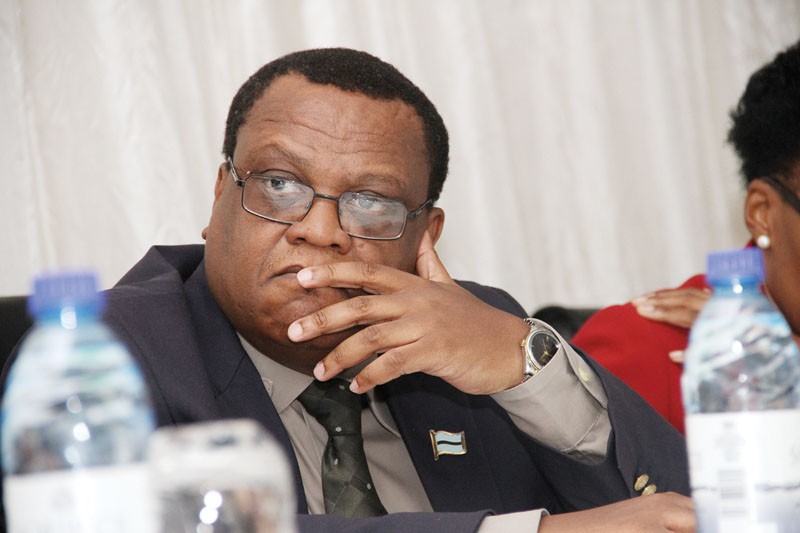Eritrean 10 trusted Botswana government - Makgonatsotlhe
Monkagedi Gaothobogwe | Monday November 2, 2015 15:29


He told The Monitor that despite the global hullabaloo that ensued when a South Africa-based Eritrean Human rights NGO and local lawyer Dick Bayford applied to Court to interdict Botswana government from deporting the football players, the government had, from the beginning, handled the matter legally and procedurally.
“On the contrary, we actually followed due process from day one, not because of any court action; as soon as the Eritrean 10 had presented themselves to Francistown Police, the process of interviewing them one by one started, and the Refugee Advisory Committee (RAC) among which sits a representative of United Nations High Commissioner for Refugees (UNHCR) was alerted and it started its work also,” Makgonatsotlhe said.
The players were granted asylum last week following weeks of confusion regarding their situation. The 10 had, after the World Cup qualifier against the Zebras at the Francistown Sports Complex three weeks ago, refused to return home and instead pleaded for political asylum in Botswana. When the minister of Defence and Security, Shaw Kgathi went on GabzFM to declare that the players should return home to apply for asylum from there, there was an instant outcry. An Eritrean human rights organisation based in South Africa engaged a local human rights lawyer Dick Bayford to interdict the Botswana government. Kgathi later retracted his statement.
But, insisted Makgonatsotlhe, despite persistent doubts and worries from the lawyers representing players, there was no cause for worry.
“Mind you, the remark by the minister (on GabzFM) were unfortunately misunderstood and taken out of context despite the existing government policy, which was well articulated by the minister in a Btv interview afterwards.”
Makgonatsotlhe said the government recognised that human rights organisations like the Eritrean Movement for Democracy and Human Rights, can intervene on behalf of vulnerable persons like in the case of the recent court action. He was however adamant that the NGO or its lawyers did not raise any point of law that Botswana Government did not believe in. “The government would not have deported them before they were assessed. This has always been the government of Botswana’s policy on how to handle asylum seekers, guided by our Refugee (recognition and control) Act,” he said.
Makgonatsotlhe said although many people may not know, the Eritrean 10 had so much trust in the government of Botswana such that they feared that the court action by a third party might jeopardise their case.
“We read in the papers the allegations that some secret agents may have gone to the holding centre and coerced the Eritrean 10 into shunning the visit by Dick Bayford’s team. It cannot be true, we gave the legal team permission to go and interview the Eritrean 10 as they had requested. Unfortunately, the Bayford team spent the whole day there without being welcomed by the Eritreans. My office then received a request from Dick Bayford for CCTV footage because the lawyers suspected some secret agents may have visited and threatened the Eritrean 10, but we could not entertain that, as the holding facility is a high security area. We cannot just give out video footage that may land in wrong hands, we turned down that request purely for the security of the people in that facility,” Makgonatsotlhe explained.
Makgonatsotlhe also admitted that Dick Bayford’s team was not allowed into the facility in their first attempt at meeting the Eritrean 10. However, Makgonatsotlhe said though the lawyers may feel frustrated, the decision not to allow the lawyers in was arrived at after it was found that the legal team intended to use gadgets like cameras, voice recorders, something that is not allowed at such a high security facility.
“At the end though, the government’s processes for assessing asylum seekers proved to be fair. Even the Minister who was frequently mentioned as uncompromising, approved the refugee status of the Eritrean 10 and they are now at the Dukwi Refugee camp,” he said.
Makgonatsotlhe added that the Eritrean 10 are not the first Eritreans to seek asylum in Botswana, adding that Botswana refugee camp also have Ethiopians, Somalis, Rwandans, Burundians, DRC, Algerians, Cameroonians, Sierra Leoneans and Kenyans.
